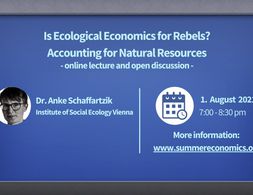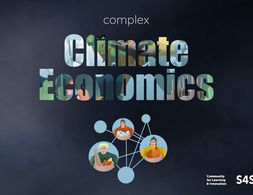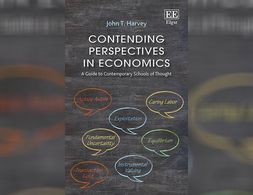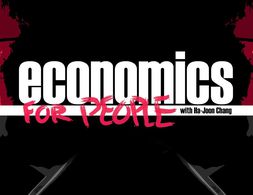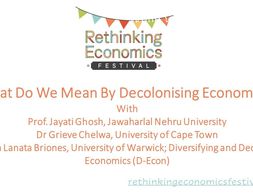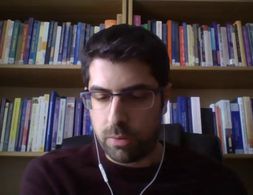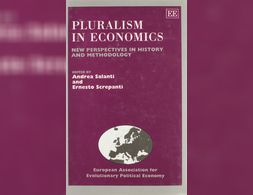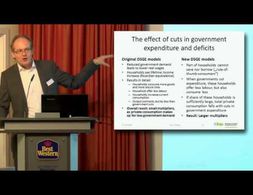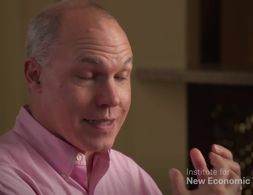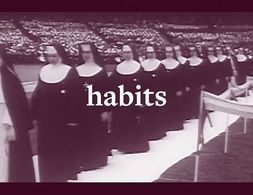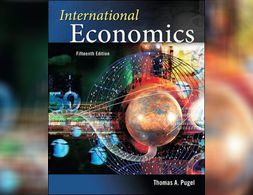✕
1141 results
This paper posts a heretical question: Is economics a science after all? The answer to this question impinges on the methodology, hypotheses and results of economic research.
Sporting events can be seen as controlled, real-world, miniature laboratory environments, approaching the idea of “holding other things equal” when exploring the implications of decisions, incentives, and constraints in a competitive setting (Goff and Tollison 1990, Torgler 2009). Thus, a growing number of studies have used sports data to study decision-making questions that have guided behavioral economics literature.
Ecologcial economics conceptualizes our society as embedded within the environment and our economic system as embedded within society and the environment.
This book discloses the economic foundations of European fiscal and monetary policies by introducing readers to an array of alternative approaches in economics. It presents various heterodox theories put forward by classical economists, Marx, Sraffa and Keynes, as a coherent challenge to neoclassical theory.
In the last half century, economics has taken over from anthropology the role of drawing the powerful conceptual worldviews that organize knowledge and inform policy in both domestic and international contexts. Until now however, the colonial roots of economic theory have remained relatively unstudied. This book changes that.
Quinn Slobodian a historian of modern Germany and international history analysis of current development in the Mont Pèlerin Society and therefore neo-liberalism. He sees neo-liberalist thinkers less as believers in the self-healing power of markets, but more as ordo-liberal Globalists who wanted to protect the markets from post-war politics and especially mass democracy. Their goal of global capitalism is still strong, however sceptics in the Mont Pèlerin Society are rising, which see international migration as a threat to Globalisation. Therefore, turning neo-liberal policies away from international institutions like the EU back towards the national states as new defenders of the markets as well as international trade and investments.
(A development which can be seen in the Friedrich A. von Hayek-Gesellschaft and especially in the "liberal" wing of the German rightwing populist party AfD)
Can pluralism in economics be useful to tackle the fight against climate change? How can a diversity in methods and ideas allow for a better understanding of the issue of the climate crisis? What solutions do different schools of thought offer to overcome the most pressing challenge of the 21st Century? Our Rethinker Henrika Meyer will give you some answers and give you a glimpse of the solutions pluralism offers to tackle the fight against climate change.
Can pluralism in economics be useful to tackle the fight against climate change? How can diversity in methods and ideas allow for a better understanding of the issue of the climate crisis? What solutions do different schools of thought offer to overcome the most pressing challenge of the 21st Century? Our Rethinker Henrika Meyer will give you some answers and give you a glimpse of the solutions pluralism offers to tackle the fight against climate change.
Taking as its starting point the interdependence of the economy and the natural environment, this book provides a comprehensive introduction to the emerging field of ecological economics.
In the graveyard of economic ideology, dead ideas still stalk the land.
The recent financial crisis laid bare many of the assumptions behind market liberalism—the theory that market-based solutions are always best, regardless of the problem. For decades, their advocates dominated mainstream economics, and their influence created a system where an unthinking faith in markets led many to view speculative investments as fundamentally safe.
John Harvey's accessible book provides a non-technical yet rigorous introduction to various schools of thought in economics. Premised on the idea that economic thinking has been stunted by the almost complete rejection of anything outside the mainstream, the author hopes that this volume will open readers' minds and lead them in new and productive directions.
This article reviews insights of existing literature on global care chains. A specific focus is laid on the impact that the refugee crisis has on global care chains and in turn how the crisis impacts the de-skilling of the women in the migrant workforce.
Economics has long been the domain of the ivory tower, where specialized language and opaque theorems make it inaccessible to most people. That’s a problem.
Alvin Roth and Lloyd Shapely won the Nobel Memorial Prize in Economic Sciences for their work on market design back in 2012, but it is a field that is still underrepresented in economics education. All markets have rules, and how these rules are set influence how the market functions.
Professor Jennifer Clapp explains the dynamics of financialization of land and agricultural commodities in Subsaharan Africa. She points to the historical roots of accelerated land speculation and their connection to financial institutions, both generating and reinforcing the process of financialization of African land. Besides talking about roots and dynamics of speculation with land on financial markets, she puts the perspective of scholarly investigation onto the investor's side in discussing guidelines of responsible investment and regulation in the front instead of focussing on the receiving countries.
This syllabus opens a literary overview of must-read papers in the field of development economics.
Critique of neoclassical economics is presented and contrasted with the more realistic assumptions made by an complex adaptive systems and evolutionary approach.
Silvia Federici outlines the content of her book „Caliban and the Witch - Women, the Body and Primitive Accumulation“. Departing from a critique of the Marxist blindspot on reproductive labour, Federici aims at researching the historical process by which the exploitation of women and the construction of the unproductive housewife has been established. Federici points to the transition from the feudal to the capitalist mode of production and explains how the gender specific prosecution (witch hunt) was linked to necessity of control over bodies and the sexuality in the great transformation. Federici also presents arguments why this research is highly relevant for the analysis of women's situation in current capitalism.
In this article, Gareth Dale analyzes and compares the main characteristics and differences of two visions that are currently emerging to tackle Climate Change: the Green New Deal and Degrowth. Which are the consequences from the environmental, economic and political point of view? And what are the underlying doctrines?
Aim: to work out jointly with students a systematic perception of how the gender factor can impact on economic and demographic development. This course is pioneering: it is the first time that such a course has been introduced into the curriculum of a Russian higher educational institution with a focus on economics.
In this webinar, Dr. Grieve Chelwa, Dr. Cecilia Lanata Briones and Professor Jayati Ghosh discuss what is meant by “Decolonising Economics”.
"Despite the rediscovery of the inequality topic by economists as well as other social scientists in recent times, relatively little is known about how economic inequality is mediated to the wider public of ordinary citizens and workers. That is precisely where this book steps in: It draws on a cross-national empirical study to examine how mainstream news media discuss, respond to, and engage with such important and politically sensitive issues and trends.
What is economics? What can - and can't - it explain about the world? Why does it matter?
This is a good introduction to Austrian Economics for laypeople. It slowly develops the school's core principles from the thinking of its founders, all the way to key thinkers to integrate both macro and microeconomics into one coherent whole.
This is webinar series organized by the SOAS Open Economic Forum and the SOAS Economics Department with speakers from the same department as well as other academic figures.
Economics is dogmatic, monolithic, merely quantitative, highly normative, strongly political, primarily ethical, pseudo-scientific, and manipulative.
Contributors attempt to reconcile two major strands of thinking in economic methodology: the rhetoric of economics as advocated by Deirdre McCloskey, and the sociological approach.
The first keynote speech was given by Sebastian Dullien, current spokesperson of FMM and who is one of the most well-known German economists in applied European economics and a very active contributor to the pluralist debate. Sebastian discusses the strategy of “running with the pack” by using orthodox methods to disseminate pluralist economics and politics. Referring to diverse examples Sebastian addresses the pros and cons of “running with the pack” and proposes alternative approaches to achieve more pluralism in economics.
The book is offered, in the first instance, to students who are beginners in economics, but some parts of it may be of wider interest.
The three topics, Economic Doctrines, Analysis and Modern Problems, might be the subject of concurrent courses or they may be studied consecutively.
Professor Joseph Aldy from Harvard Kennedy School gives us some insights about how economics can set the balance between policymakers, scientists, employers and citizens.
In this talk Robert Skidelsky analyses how sociology did and could enrich economic analyses, but also how critical sociological insights have been colonised by mainstream economics.
International Economics, 15e continues to combine rigorous economic analysis with attention to the issues of economic policy that are alive and important today in this field.
We use cookies on our website. Click on Accept to help us to make Exploring Economics constantly better!



